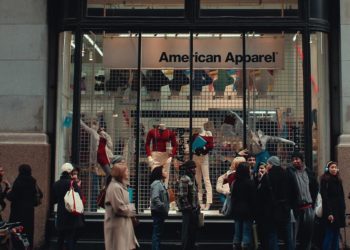What was poetry? That’s the question John Koethe asked in “Beyond Belief,” his 2022 collection of verse. He was speaking about how poems come and go but none seem to make an impression. Lucy Sante framed this somewhat differently when she asked, “Was ‘Howl’ the last poem to hit the world with the impact of news and grip it with the tenacity of a pop song?”
The Nigerian British poet Caleb Femi’s second collection, “The Wickedest,” is unlikely to turn this situation around. But it’s got impudence and élan, and a feeling for life on the margins of English society. It’s alive in the way poetry must be.
Femi’s title refers to the name of a fictional monthly house party in South London, and this book’s action takes place over the course of a single night. You must be a local, and in the know, to get in; these events are not advertised.
The riotous dancing is, for the attendees, those lucky few, a salve on life’s burn. So is the music itself, of which Femi is a delicate appraiser. He considers his mother’s heartbeat to be his original bass line, and her womb “the first room I danced in.” Femi describes a feeling many of us have had but have not seen so well expressed, that of “hearing a song for the first time” and “realizing that it’s always been playing / in the background of your life.”
“The Wickedest” is a scattering of electricities. The dancing is all impulse and appetite, with a DJ who occasionally breaks in to announce something comic like:
shout-out to the lovers in the house
big up the couple lipsing by the window
you lot been there all night though
you’re blocking the breeze please kiss somewhere else.
Dancing has been referred to as a vertical manifestation of a horizontal intention. Reading Femi on churning bodies put me in mind of an intentionally dowdy bit of A.R. Ammons’s verse: “Swing! / your partner, / promenade (and when / you can / get laid / get laid).”
The house party is a way to flee the realities of difficult lives, to enter “this secret city of flair.” The reader is made aware of cramped living conditions, of poverty, of “the asbestos of worry.” One character waits for his direct deposit to hit at midnight. Another, while at home, wears AirPods to drown out his uncle’s sobs.
This book’s sonnets and scattered monologues throw out images that stick with you: smudges of makeup on a T-shirt, breakfast cereal eaten with cooking oil, lists of lies people tell at parties (“Link up soon”), certain curated playlists, the way humor keeps your abs in shape.
Femi’s last book of poems, “Poor,” was about life in the sprawling North Peckham Estate, grim public housing where he spent his childhood. One senses similar tall and anonymous concrete housing in “The Wickedest,” for example when the narrator announces, “Dancing is your body falling from a skyscraper / and suddenly learning flight.”
Femi is also a filmmaker and photographer, and his bold images attend the text. The photos alone in “Poor” are worth the price of admission. In that book, he observes:
When hipsters take selfies
on the corners where our
friends died, the rent goes up.
He writes, “an angel is anyone who visits the desperate with news.” His verse is in constant conversation with musicians and with other poets. Femi smuggles in this line from “The Sobbing School,” by Joshua Bennett: “Lord, if you be / at all, be / a blade.”
In another poem in “Poor,” the speaker is aware that his own fame is changing his relationship to his homeplace:
I crossed over
& now the hood won’t take me back.
I stink of uptown, high ceilings, grand windows —
they know that I room in the belly of the bourgeois.
Over at “The Wickedest,” the party will burn until dawn. The first rule of the party appears to be: Don’t talk about the party. One poem ends:
And when you leave here, do not
speak of what you saw tonight.
If the outsiders ask,
tell them you saw nothing, no poetry
or anything worth calling [art],
only cobwebs, stinky food
and trick mirrors.
This is a young person’s book. Not all its poems coalesce. But Femi’s boldness and sensitivity underscore one of the messages this intrepid collection deals out: “What scares you makes you groove.”
The post You’ve Been Invited to a Secret House Party in London appeared first on New York Times.




